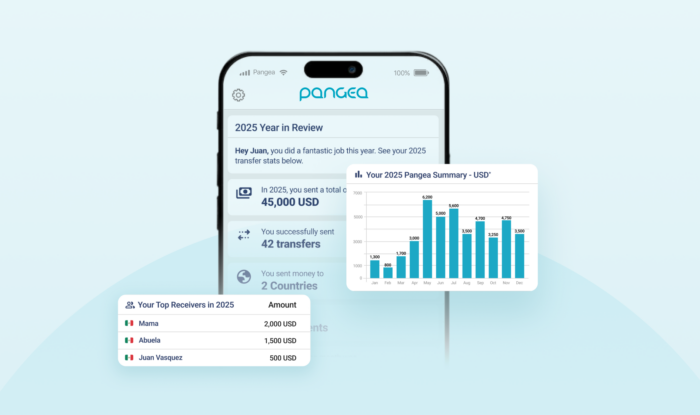Father’s Day is more than just a date on the calendar—it’s a heartfelt celebration of the men who guide, protect, and support us. It’s a day to honor fathers, grandfathers, stepdads, and all paternal figures who’ve played a role in shaping our values, traditions, and identity across generations.
From heartfelt gifts to shared meals and cultural rituals, the way we celebrate Father’s Day varies from country to country—but the intention remains the same: to show appreciation and love for the men who’ve helped raise us.
In this blog, we’ll take a look at how Father’s Day is celebrated around the world, exploring unique customs that highlight the universal importance of fatherhood—no matter where you call home.
Mexico (June 15)
Father’s Day—El Día del Padre—is celebrated on the third Sunday of June in Mexico. Families gather to mark the occasion, whether it’s a cookout at home or a special meal at a restaurant. No matter the plan, food is always at the heart of the celebration.
To make the day even more meaningful, gifts play an important role. From handmade cards and drawings to clothing or accessories, family members give tokens of appreciation to the paternal figures in their lives.
In Mexico City, there’s even a unique tradition: the annual 21K Father’s Day race. This event encourages families to run together and adds a special, active touch to the celebration. It’s a powerful symbol of unity, strength, and shared experience.
In some indigenous or rural communities, Father’s Day is celebrated alongside local customs that may include music, dance, or symbolic gestures of respect.
Colombia (June 15)
Similar to Mexico, where family unity and parental respect are deeply rooted in the culture, Father’s Day in Colombia is a meaningful and widely celebrated occasion. Although it’s typically celebrated on the third Sunday of June, the date may shift to the fourth Sunday if it coincides with elections or another major national event.
Reflecting Colombia’s strong Catholic traditions, many families begin the day by attending Mass together, giving thanks and seeking blessings—especially for their paternal figures. This adds a spiritual touch to the celebration.
Given the country’s deep love for soccer, many fathers and their children spend part of the day watching a match, heading to a local stadium, or playing a friendly game together. It’s a fun and meaningful way to connect through one of Colombia’s most cherished traditions.
Philippines (June 15)
Although Father’s Day is not an official public holiday, it is celebrated across the country. Rooted in the strong Filipino value of pamilya (family), the day is dedicated to expressing love, respect, and gratitude to fathers, grandfathers, and all paternal figures who serve as providers, protectors, and mentors.
Many families begin the day by attending Mass together, reflecting the country’s deep Catholic traditions. Afterward, it’s common to enjoy a special family lunch or dinner—either at home with home-cooked meals or at a favorite restaurant. Some families also prepare surprise parties, letters, or small gifts for their dads, with children often taking the lead in making the day extra special.
Beyond the celebrations at home, local malls and communities often organize Father’s Day events, such as mini-concerts, contests, or family-friendly games, making it a festive experience for everyone. Whether through thoughtful gestures or simply spending time together, Filipinos embrace the occasion as a meaningful way to honor the strength, sacrifice, and heart of fatherhood.
Italy (March 19th)
In Italy, Father’s Day—La Festa del Papà—is celebrated on March 19 every year, regardless of the day of the week it falls, coinciding with the Feast of Saint Joseph, the father of Jesus. Deeply rooted in Catholic tradition, this day is not only a time to honor fathers and grandfathers, but also to pay tribute to Saint Joseph, seen as a model of fatherhood. It’s also a day of celebration for anyone named Giuseppe (Joseph), a common name across the country.
Many families begin the day by attending Mass together, offering prayers for the fathers in their lives, both living and deceased. The spiritual aspect of the holiday is central in Italian culture, where fatherhood is viewed not only as a responsibility, but as a sacred role within the family.
One of the most beloved traditions of La Festa del Papà is the indulgence in zeppole di San Giuseppe (also known as bignè di San Giuseppe in some regions). These delicious pastries are filled with rich custard or cream, topped with powdered sugar and a candied cherry. They’re widely available in bakeries across Italy throughout mid-March and are a sweet symbol of the day’s joyful spirit.
Thailand (December 5th)
In Thailand, Father’s Day is celebrated on December 5, a date that holds deep national and emotional significance. It marks the birthday of the late King Bhumibol Adulyadej, who was widely revered not only as a monarch but as a father figure to the Thai people. Because of this, the day is both a public holiday and a heartfelt tribute. Citizens wear yellow, the color traditionally associated with the king, as a sign of respect and unity.
The day often begins with families visiting temples—offering alms to monks in honor of their fathers, whether living or passed. This spiritual practice reflects Thailand’s deep Buddhist roots and adds a layer of reflection and gratitude to the day’s celebrations.
A traditional symbol of the occasion is the canna flower, which is often given to fathers as a gesture of love and respect. In Thai culture, the canna represents strength and masculinity, making it a fitting tribute to the role of fathers within both the family and society.
Germany (May 29th)
In Germany, Father’s Day—known as Vatertag—falls 40 days after Easter Sunday, aligning with Ascension Day, a national holiday. While the exact date changes each year, it always lands on a Thursday. Unlike many other countries where the focus is on family-centered celebrations, Germany’s version of Father’s Day is more about male bonding and outdoor fun.
Traditionally, groups of men—fathers or not—celebrate by heading outdoors for long walks, bike rides, or countryside treks, often pulling wooden wagons (Bollerwagen) filled with beer, schnapps, and picnic essentials. The atmosphere is festive and relaxed, with plenty of laughter, music, and hearty food like sausages, grilled meats, and pretzels.
While it may not always involve family meals or gifts, German Father’s Day reflects a unique celebration of masculinity, friendship, and camaraderie. It’s a cultural blend of tradition and recreation that continues to be embraced across generations.
Different Traditions, Same Love
From heartfelt meals in Mexico to outdoor treks in Germany, Father’s Day is celebrated in unique and meaningful ways across the world. Whether rooted in religion, cultural values, or simple gestures of appreciation, each tradition reflects the universal truth: fathers and father figures play a powerful role in shaping who we are.
No matter where you’re from or how you celebrate, Father’s Day is a chance to say thank you, honor their sacrifices, and strengthen the bond that distance or time can never erase. With Pangea, you can send them a meaningful money transfer to show your appreciation in a way that truly makes the difference.
DISCLAIMER – This content is for informational purposes only. Pangea and its affiliates do not provide legal, financial, investment or tax advice.




